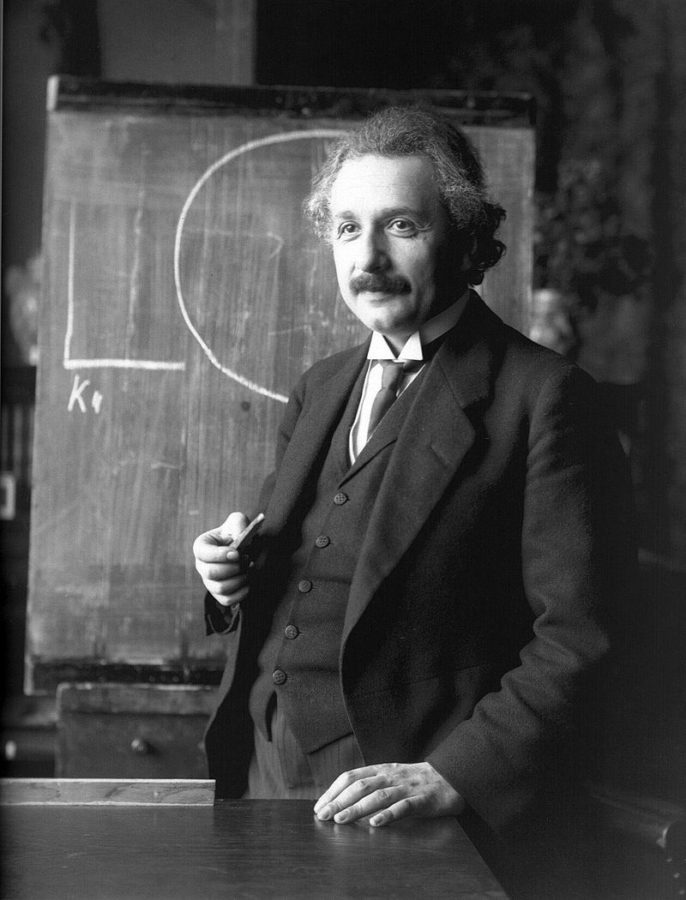Scientists detect gravitational waves
Albert Einstein giving a lecture in Vienna in 1921. There are rumors buzzing that his theories on gravity have been proven by the laser Interferometer Gravitational-Wave Observatory.
February 10, 2016
Ripples through the space-time continuum may sound straight out of science fiction, but Albert Einstein had predicted the existence of such waves more than a 100 years ago.
In his General Theory of Relativity, Einstein dubbed these ripples as “gravitational waves.” The science world has yet to detect these illusive disturbances, but a press conference at Columbia University on Thursday may finally confirm the great scientist’s claim.
“If the LIGO has confirmed gravitational waves exist, it’s another conformation in favor of Einstein’s theory of gravity,” said Alisha Chromey, graduate student in physics and astronomy.
The LIGO is the Laser Interferometer Gravitational-Wave Observatory, an experiment made up of four facilities around the United States, meant to detect gravitational waves. After being upgraded, the LIGO was put back to work and rumors are already pointing to the LIGO team’s confirmation of the existence of gravitational waves.
Gravitational waves and Einstein’s theories are not simple to grasp. So if people find themselves wondering what a gravitational wave really is, there are plenty of formal definitions out there.
“Gravitational Waves: Sources, Detectors and Searches” in the journal Progress in Particle and Nuclear Physics 68 states that “gravitational waves are disturbances of spacetime itself that propagate at the speed of light and have two transverse quadrupolar polarizations.”
The science community is buzzing with rumors of gravitational waves and waits in great anticipation for the press conference. The thought of detecting gravitational waves from astronomic phenomena excites scientists abroad.
Someone who is not in the field of physics or astronomy may wonder what all the fuss is about. What does the discovery of gravitational waves mean?
“From my perspective, this is the first marker on the path to actual gravitational wave astronomy, said Amanda Weinstein, assistant professor of physics and astronomy at Iowa State. “[Gravitational waves] would give us access to measurements we previously couldn’t make as well as complementary ways of making measurements.”
If gravitational waves could be used in space observation, it would let scientists gaze deeper into space than ever before. The properties of many astrological marvels, including black holes and neutron stars, could be studied in a whole new light.
The waves can also help us understand the very force that keeps us planted to the ground: gravity.
In short, gravitational waves give people a whole new way to look at the vast universe surrounding us. This has scientists around the world waiting for the press conference and whether gravitational wave detection will be confirmed. Gravitational waves can give us insight on our entire universe and that excites scientists and non-scientists alike.
“If you open up a new window into the universe, the game changes. Each new window lets us access new information,” Weinstein said. “It’s like opening up a previously sealed box. We don’t always know what’s going to come out of that box, but based on what we’ve seen in the past, we expect that there will be surprises and that it’s going to be exciting.”

















